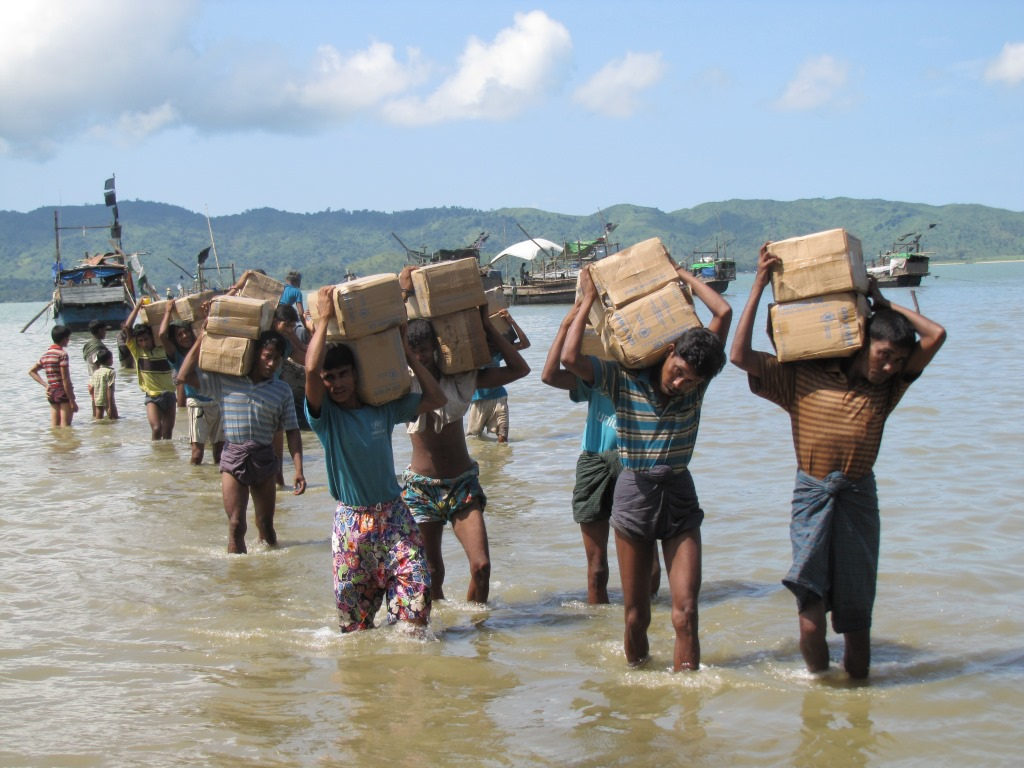Myanmar Army Offensive to Prevent Rohingya Return
 A new report from the UN Human Rights Office contradicts Myanmar’s claims that it used military force against the Rohingya, a Muslim minority group, in self-defense. The report characterized the attacks on Rohingya villages as premeditated and stated that the military violently abused the Rohingya in the weeks prior to large-scale Rohingya resistance. Many Rohingya have chosen to flee Myanmar for Bangladesh in a new surge following what the UN has labeled an ethnic cleansing of the Rohingya.
A new report from the UN Human Rights Office contradicts Myanmar’s claims that it used military force against the Rohingya, a Muslim minority group, in self-defense. The report characterized the attacks on Rohingya villages as premeditated and stated that the military violently abused the Rohingya in the weeks prior to large-scale Rohingya resistance. Many Rohingya have chosen to flee Myanmar for Bangladesh in a new surge following what the UN has labeled an ethnic cleansing of the Rohingya.
According to interviews with Rohingya who fled to Bangladesh in the past month, the military tortured and killed innocent children and raped pregnant mothers in addition to other accounts of human rights violations. These actions preceded armed attacks by Rohingya fighters against police posts, resulting in over 100 deaths on August 25, according to Al Jazeera. These attacks involved thousands of Rohingya militants belonging to a resistance group known as ARSA or Harakah-al Yaqin (the Faith Movement), according to the New York Times.
The uprising took place in the state of Rakhine, Myanmar’s poorest state and home to the Rohingya minority. The new surge of radicalization of young Rohingya complicates the situation with the state military, as it has further justified more repressive measures in the name of fighting terrorism.
Refugees who fled tell a different story, though. One woman recalled hearing over a loudspeaker: "You do not belong here, go to Bangladesh. If you do not leave, we will torch your houses and kill you," according to the UN report. The military’s countermeasures have resulted in burned villages and destroyed crops, harming Rahkine civilians who are already overwhelmingly poor. These measures by the state have led to a mass surge in Rohingya refugees fleeing across the Myanmar border into Bangladesh. According to the Sydney Morning Herald, more than half a million Rohingya have left Myanmar.
UN High Commissioner for Human Rights Zeid Ra'ad al-Hussein described the government operations as "a textbook example of ethnic cleansing" and said in a statement that the actions seemed like "a cynical ploy to forcibly transfer large numbers of people without possibility of return," according to Al Jazeera.
A Reuters report states that the EU is considering avoiding contact with Myanmar’s senior military leadership as a first step to combat the persecution detailed in the new UN report. The Myanmar government vowed to support reconstruction efforts for the Rohingya while refusing to admit the situation constitutes genocide or ethnic cleansing.
On the other hand, Al Jazeera considers the Rohingya “the world’s most persecuted minority.” The recent persecution of the Rohingya fits into the larger narrative within Myanmar of the minority’s disadvantaged state due to a 1982 citizenship law restricting their access to voting, work, and education, while also rendering them essentially stateless. Current political leaders in Myanmar have remained silent about the Rohingya issue.
